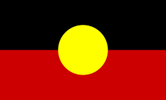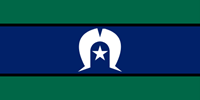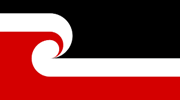ACEM is committed to growing the Aboriginal and Torres Strait Islander and Māori emergency physician workforce and integrating cultural safety into emergency departments. The College provides a range of services and initiatives to support Aboriginal, Torres Strait Islander and Māori trainees along their pathway to specialisation in emergency medicine.
In addition to ACEM’s Innovate Reconciliation Action Plan, in 2019, the College launched Te Rautaki Manaaki Mana, a strategy to achieve equity for Māori patients, their whānau and staff in Aotearoa New Zealand emergency departments.
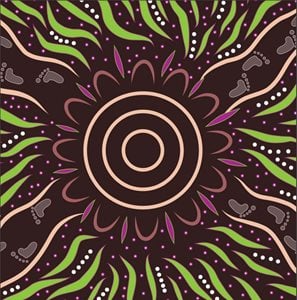
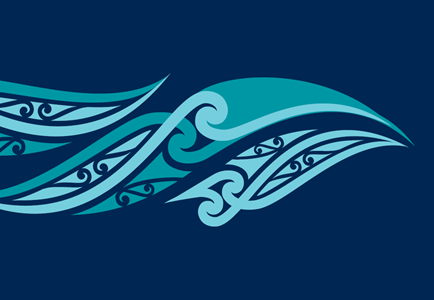
Artwork from ACEM's Innovate RAP 2022-2024, thanks to Richie Allan, Ngunnawal Art 2022, and ACEM's Te Rautaki Manaaki Mana 2022-2025, thanks to Sam Robinson, Ngāti Raukawa and Len Hetet, Ngāti Tūwharetoa, Ngāti Maniapoto, Te Atiawa, Ngāti Apa, 2019.
Pre-vocational
ACEM encourages Aboriginal, Torres Strait Islander and Māori medical students and graduates to consider a career in emergency medicine.
The College offers annual sponsorship for one medical student and one intern to attend the Australian Indigenous Doctor's Association (AIDA) annual conference. For more information on applying contact AIDA.
The College also sponsors the annual Te ORA conference and is actively involved in the Leaders in Indigenous Medical Education (LIME) Network.
Hear more from FACEMs about why they chose EM, and what they find most rewarding about their roles via the accordions below.
Dr Tatum Bond
Dr Inia Tomash
Selection
For selection into FACEM training, there are no interviews or entry exams, and applicants are no longer required to sit a Situation Judgement Test (SJT).
Our selection into the FACEM Training Program includes indigeneity and rurality as key considerations.
Applicants are able to self-identify if they are from Aboriginal, Torres Strait Islander or Māori origin. We do not require any supporting documentation in relation to indigeneity.
- When applications are reviewed by the Selection into FACEM Training Subcommittee, all information is presented in a de-identified format.
- Should an applicant indicate indigeneity, this information is never shared with the applicant’s workplace. It is only used for the purposes of the Selection into FACEM Training application.
- We have community and indigenous representation on the Selection into FACEM Training Subcommittee.
Rurality is also considered as part of the Selection process. If an applicant has completed 12+ months of post-graduate medical work or 5+ years of schooling in a rural location, they can indicate this on their application. Please see our website for further information about rurality and the supporting documentation required.
Find information on how to apply.
Training
The FACEM Curriculum includes compulsory modules in Training Stage One in cultural safety and indigenous health.
Information on cultural safety is also provided to Directors of Emergency Medicine Training (DEMTs) and Assessors.
Individualised support
ACEM has dedicated staff members available to provide support to prospective and current Aboriginal, Torres Strait Islander and Māori trainees:
Di Te Tau, Project Lead, Māori Health
e: [email protected]
t: +64 4 333 2472
Isabella Dimoska, Coordinator, Training Services
e: [email protected]
t: (03) 9320 0404
Practical experience
We offer an optional Special Skills Placement (SSP) in Indigenous health as part of the FACEM training program.
Among the learning objectives set out as part of this Special Skills Placement, a trainee will:
- provide continuing care with a focus on the central role of family/whānau and culture
- demonstrate an understanding of the barriers to care Indigenous people may face
- demonstrate an awareness of the social determinants of health and how this impacts the person, family and cultural group
- develop skills in working with interpreters, team members of Māori health units and other cultural brokers, such as Indigenous liaison officers and Indigenous health workers.
- demonstrate an awareness of the structural elements necessary in creating cultural safety in a health service.
Find more information about ACEM Accreditation or this SSP.
Scholarships
ACEM has five Indigenous Scholarships, Awards and Grants:
Find further information on these Scholarships, Awards and Grants.
Educational modules
Access ACEM's award-winning Indigenous Health and Cultural Competency resources.
Initiatives
ACEM has the following Indigenous and Māori Health initiatives in place:
- Indigenous Health Committee
- Reconciliation Action Plan Steering Group
- Manaaki Mana Ropu
- Māori Network
- Aboriginal and Torres Strait Islander Network
Contact
Contact Di Te Tau, Project Lead, Māori Health, to discuss these initiatives.
e: [email protected]
t: +64 4 333 2472
